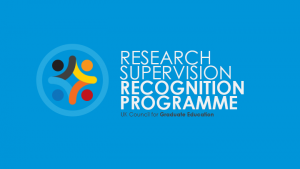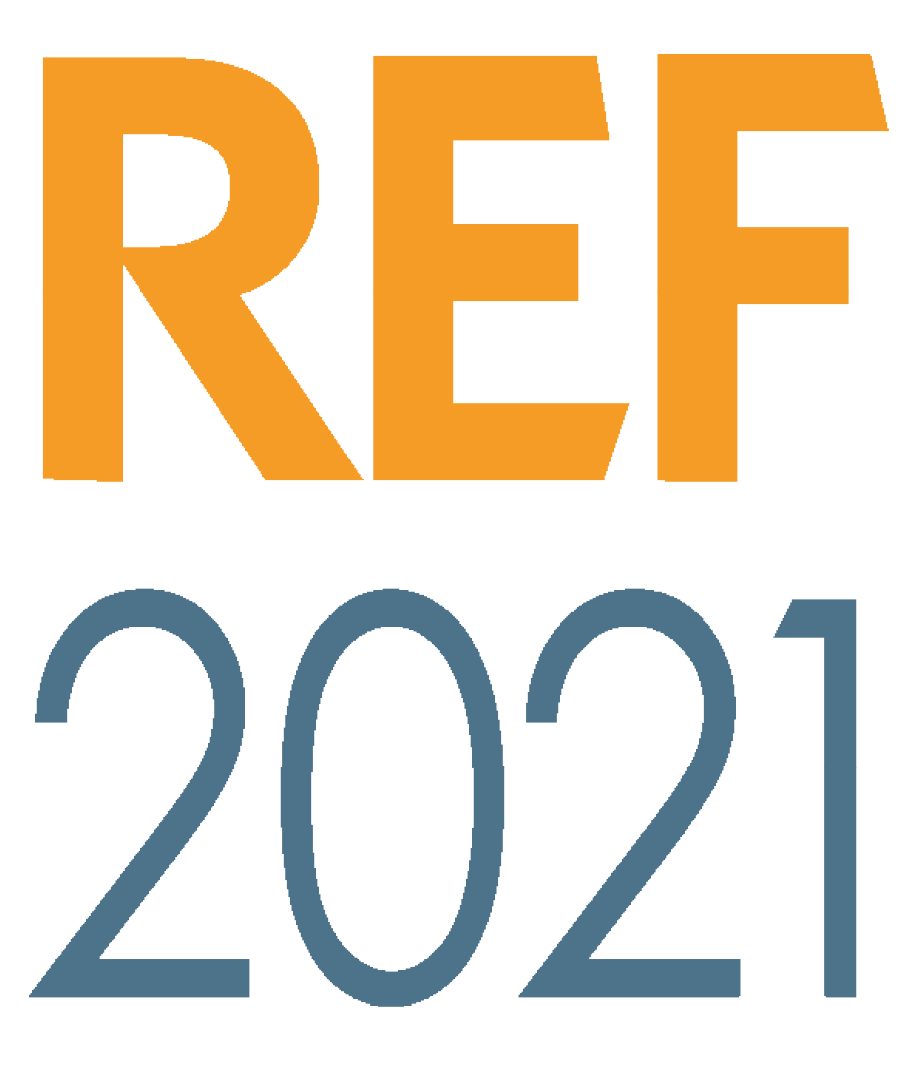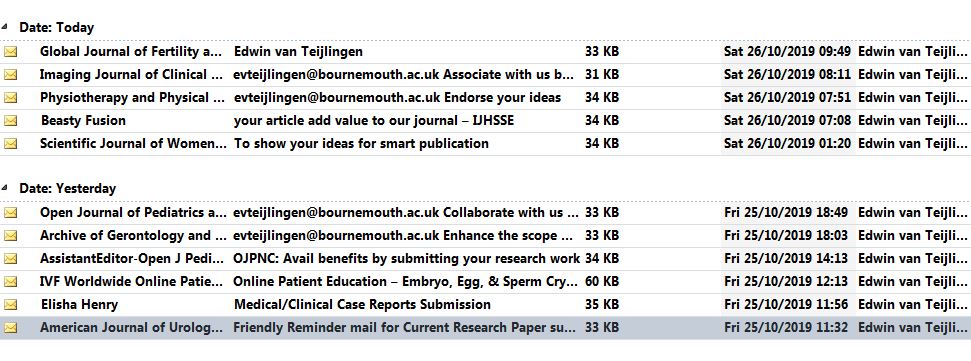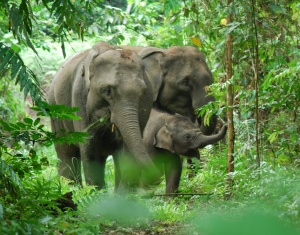
Earlier this year, the UK Council for Graduate Education (UKCGE) ran a pilot scheme exploring the feasibility of a Research Supervision Recognition Programme to set a benchmark for good-practice in research supervision and to shine a light on this under-appreciated area of academic practice.
BU was one of 13 HEIs invited to participate in the pilot and, to recognise and celebrate good practice in research supervision here at BU, three supervisors from three faculties (FHSS, FM, FST) was asked to take part. Each participant wrote an extended reflective statement on their supervisory experience and practice, focusing on all areas of the role. All applications were successfully assessed by the UKCGE review panel and participants were commended for the commitment and enthusiasm they demonstrate for the role, and are now able to use the title “UKCGE Recognised Research Supervisor”.
The Doctoral College led the institutional participation in the pilot and Dr Fiona Knight reported to UKCGE that “Bournemouth University is continually identifying mechanisms to improve the experience of our PGRs and recognise that the quality of the supervisory relationship is central to this. We welcome this scheme as a way of encouraging our new and established supervisors to reflect on their practice whilst engaging with continuing professional development.”
UKCGE has now launched the Good Supervisory Practice Framework which acknowledges, for the first time at a national level, the wide-ranging, highly complex and demanding set of roles involved in modern research supervision. The framework is designed to set expectations for all supervisors and sets out the criteria used to define good supervisory practice are based on the substantive body of academic literature. Professor Stan Taylor of Durham University, who was instrumental in developing the criteria, was External Examiner for the former PG Cert Research Degree Supervision at BU. It is UKCGE’s ambition that, ‘in addition to enabling supervisors to demonstrate their ability to colleagues and candidates, the criteria underpinning the programme will create a benchmark that becomes the standard for effective supervisory practice the programme’ (Dr Gill Houston, Chair of the UK Council for Graduate Education).
Recent Advance HE PRES results for BU indicate that the majority of PGRs feel very positive about their supervisory experiences, however, it is acknowledged that supervisors can feel undervalued and overwhelmed by the scale of their task that is often undertaken in addition to many other academic responsibilities.
Roll out of programme
The Doctoral College plans to formalise BU’s engagement with the programme through its on-going programme of supervisory development activities in a process akin to TeachBU. This will enable individuals to demonstrate that they have met the good supervisory criteria and duly receive recognition. Not only will this provide encouragement for supervisors to engage with continuing professional development but it will also provide a structured process to support the development of high quality research supervision and public evidence of the quality of supervision across BU, whist aligning with a number of BU’s strategic goals that are articulated in BU2025.
Further details will be made available in due course however, if you are interested in learning more, please contact Doctoral College .




 As usual, RDS will host an annual UK Research Office visit to BU in 2019. This year’s event has been scheduled for November; the reason is obvious – Brexit!
As usual, RDS will host an annual UK Research Office visit to BU in 2019. This year’s event has been scheduled for November; the reason is obvious – Brexit!

















 Beyond Academia: Exploring Career Options for Early Career Researchers – Online Workshop
Beyond Academia: Exploring Career Options for Early Career Researchers – Online Workshop UKCGE Recognised Research Supervision Programme: Deadline Approaching
UKCGE Recognised Research Supervision Programme: Deadline Approaching SPROUT: From Sustainable Research to Sustainable Research Lives
SPROUT: From Sustainable Research to Sustainable Research Lives BRIAN upgrade and new look
BRIAN upgrade and new look Seeing the fruits of your labour in Bangladesh
Seeing the fruits of your labour in Bangladesh ECR Funding Open Call: Research Culture & Community Grant – Apply now
ECR Funding Open Call: Research Culture & Community Grant – Apply now ECR Funding Open Call: Research Culture & Community Grant – Application Deadline Friday 12 December
ECR Funding Open Call: Research Culture & Community Grant – Application Deadline Friday 12 December MSCA Postdoctoral Fellowships 2025 Call
MSCA Postdoctoral Fellowships 2025 Call ERC Advanced Grant 2025 Webinar
ERC Advanced Grant 2025 Webinar Update on UKRO services
Update on UKRO services European research project exploring use of ‘virtual twins’ to better manage metabolic associated fatty liver disease
European research project exploring use of ‘virtual twins’ to better manage metabolic associated fatty liver disease